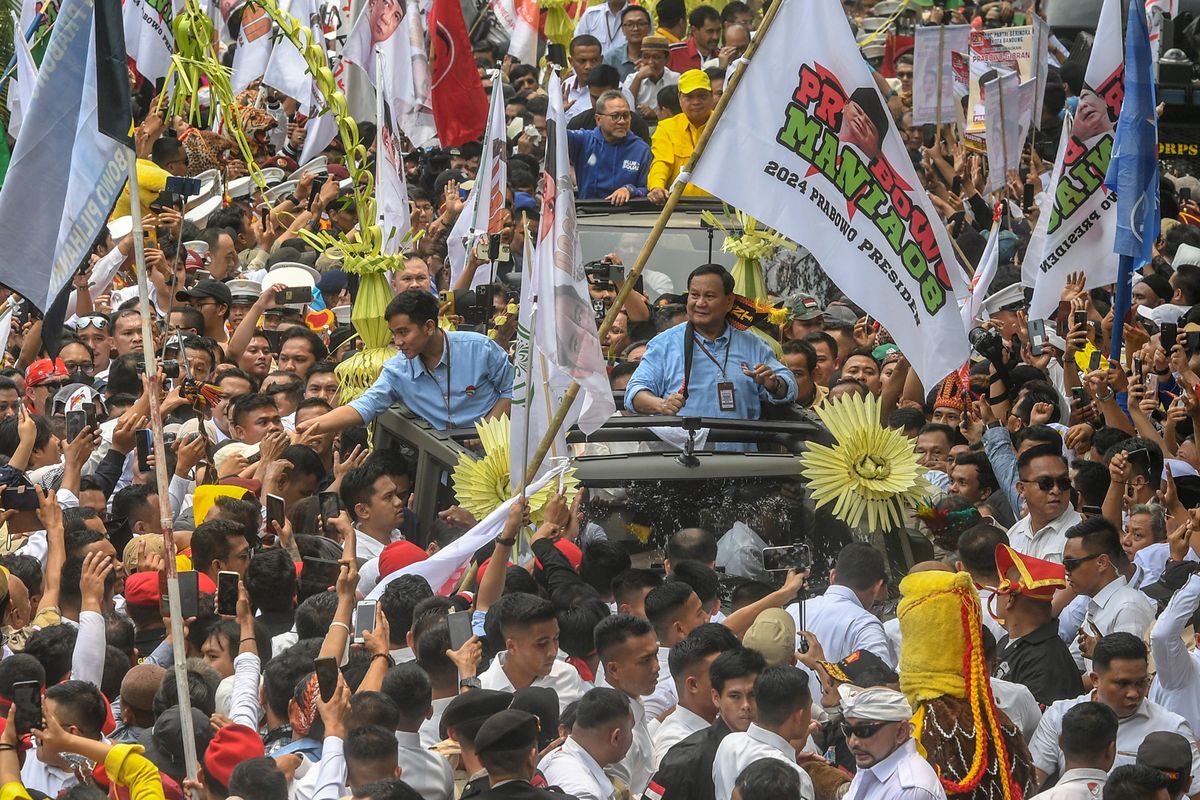Though Indonesia is the world’s fourth most populous country (pop. 276 million) and its largest majority Muslim state, it’s long been recognized more for its potential than its accomplishments. But as rivalries grow among the United States, China, and India, this archipelago nation stretching from the Indian Ocean to the Pacific is emerging as a more strategically important partner. It could also become one of the world’s 15 largest economies in the coming years.
Indonesia’s popular current president holds an approval rating of nearly 80% after nine years in power. Yet, Joko Widodo, widely known as Jokowi, is term-limited, and Indonesians will face elections next year to choose his successor. The first round of presidential voting will be held on Feb. 14, with a probable second-round runoff scheduled for June 26.
The deadline for registering presidential candidates for the election closed on Wednesday, and we now know the field. The bottom line: Next year’s election is very likely to produce political continuity.
Defense Minister and former Army General Prabowo Subianto is the favorite, in large part because he’s considered Jokowi’s anointed successor. (Prabowo’s vice presidential running mate is Jokowi’s son.) Prabowo’s strongest challenger, former Central Java Governor Ganjar Pranowo, is also considered close to Jokowi. The outsider candidate, former Jakarta Governor Anies Baswedan, is probably a long shot.
But Prabowo comes with baggage. As an army commander during the closing days of the three-decade Suharto dictatorship, which ended in 1998, he was accused of human rights abuses and banned for a period from entering the United States. He lost the 2014 and 2019 presidential elections to Jokowi. It appears, however, that the incumbent has calculated that Prabowo will allow him to retain political influence.
The greatest threat a Prabowo presidency appears to pose is to Indonesia’s economic policy. He’s viewed as a populist-nationalist, a leader more likely to govern Indonesia’s economy to sustain his popularity rather than to increase the country’s dynamism.
The campaign is now officially underway.



















